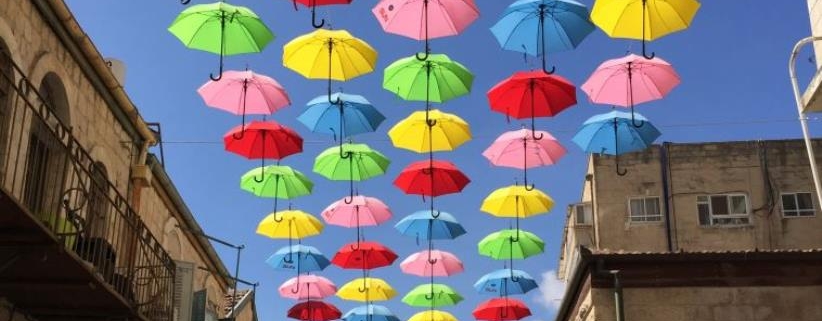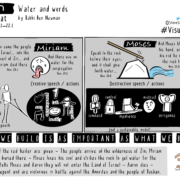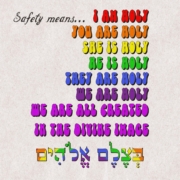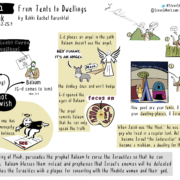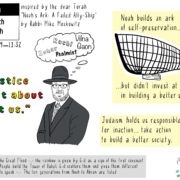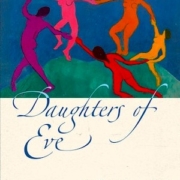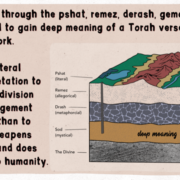Korach: Rebels vs Reactionaries, and Strength in Diversity (Numbers 16:1-18:32)
Part of an ongoing series that explores Torah through an ethic of social justice and building a world worthy of the Divine
In the early 1990s, Susan Faludi published a book entitled Backlash, wherein she argued that the major movement of the 1980s was a backlash against the gains of the social movements of the 1960s and 70s, specifically feminism. For every gain, she claimed, there was a push in the Reagan years, to circumvent and narrow the forward movement for the equality of women. One need only think as far as the “death” of the Equal Rights Amendment, which was almost ratified, and then states one by one withdrew their willingness to pass the amendment, leading to the amendment’s failure in the late 1970s. The backlash had begun in earnest.
When one looks initially at the words of Korach, he seems like a reasonable guy: we’re all equal here, all holy. The Torah reports him and his group saying:
וַיִּֽקָּהֲל֞וּ עַל־מֹשֶׁ֣ה וְעַֽל־אַהֲרֹ֗ן וַיֹּאמְר֣וּ אֲלֵהֶם֮ רַב־לָכֶם֒ כִּ֤י כׇל־הָֽעֵדָה֙ כֻּלָּ֣ם קְדֹשִׁ֔ים וּבְתוֹכָ֖ם יְהֹוָ֑ה וּמַדּ֥וּעַ תִּֽתְנַשְּׂא֖וּ עַל־קְהַ֥ל יְהֹוָֽה׃
They combined against Moses and Aaron and said to them, “You have gone too far (רַב־לָכֶם֒)! For all the community are holy, all of them, and יהוה is in their midst. Why then do you raise yourselves above יהוה’s congregation?” (Numbers 16:3)
And why not? We are all holy, and created in God’s image. We are all equally valuable. The question “why are Moshe and Aaron elevated over the rest of the people”? feels like the proper question to ask here. It appears that the rebels in this case have a perfectly valid point. But are they really rebels? Or are they merely reactionaries, in the mode of the backlash that Susan Faludi wrote about 30-some years ago.
Let’s think about what Moshe and Aaron did: they are, in most ways, the truly rebellious ones. They led us out of Egypt, out of slavery, and into freedom. Yes, there have been problems. But let’s not lose track of the fact that they, with God, made the move possible. What Korach wants to do is lead us back to a place where we’re all alike, where sameness is mistakenly taken for equality. Yes, we are all holy. But we’re also all different, and God created us in God’s image to embody all of those differences, expanding boundaries.
In Midrash Tanchuma (Korach 5), the rabbis suggest that only God gets to set boundaries, only God gets to limit and/or expand those boundaries. And that Moshe and Aaron have been elevated ABOVE those boundaries.
In today’s political climate, we’re seeing a version of Korach’s rebellion play out.
The LGBTQ+ community has made incredible gains in the past couple of decades, including among them access to the same rights offered to all beings in the west: freedom to live openly as who we are; freedom to marry if we wish to do so; equal access to healthcare; access to gender affirming healthcare. Korach’s rebellion is working to eliminate those gains by claiming that their rights are being attacked by the access we in the queer community have gained to live our lives. In short, the far right claims that it wants us all to be equal by asserting that we should all be “like them”: we can marry after all, so long as we marry a person of the opposite sex; we can have healthcare so long as our healthcare looks like their healthcare.
In short, the backlash against the LGBTQ+ gains often gets dressed in the claim that we are all “equal”, so long as we are the SAME as what is deemed to be the “norm” (in current white nationalist discourse, that means white, cisgendered, male, and a particular type of Christian). This false “equality” imposes a sameness, denying diversity.
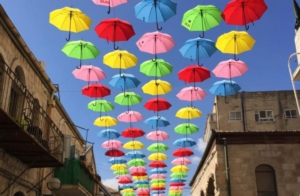
(Source: GALLERY: Colorful umbrellas float above Jerusalem streets, seeking to draw tourists – Israel News – The Jerusalem Post (jpost.com) photo credit: CINDY AZOULAY))
Through the lens of the Sfat Emet, we can see what the problems are with that:
“You have gone too far (rav lachem)! [For all the community are holy, all of them, and YHVH is in their midst. Why then do you raise yourselves above YHVH’s congregation?]
The Sfat Emet, through the interpretation of Rabbi Dr. Erin Leib Smokler, points out Korach’s fundamental fault:
–it sounds to me like a grave misunderstanding of “ma rabu”. [Korach] thought that greatness entails sameness–that to “be holy” means one thing–when he ought to know that it signals instead an explosion of “manifold” possibilities. […] Because the world, in all of its vibrancy, relies on expansion, not contraction; diversity and not uniformity.
In other words, we are each our own individual. Equality means we all are treated with dignity, not that we are all the same in order to earn that. If, as we’re also told to “love our neighbor as we love ourselves”, then it stands to reason that part of that love is acceptance of our differences: that’s how we learn to be true equals.
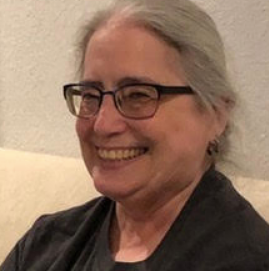
R. Cynthia (Cyn) Hoffman is a member of the Bayit Board of Directors.

